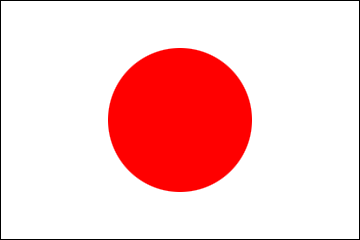The Speech from the Government of Japan at the 69th World Health Assembly (Ms. Fusae Ota, Parliamentary Vice Minister of Helth, Labour and Welfare) (24 May 2016)
The Speech from the Government of Japan at the 69th World Health Assembly
1. Opening Words
Mr. President, Madam Director-General, Excellencies, Ladies and gentlemen:
I am Fusae Ota, Parliamentary Vice Minister of Health, Labour and Welfare of Japan. I am honored to speak here on behalf of the Government of Japan.
2. 2030 Agenda for Sustainable Development
Mr. President, we highly commend that the “2030 Agenda for Sustainable Development” has been raised as the main theme at this Assembly. The 2030 Agenda sets forth numerous health-related targets to achieve, including the achievement of Universal Health Coverage. UHC will facilitate the development of society and strengthen each country’s capacity to prevent, detect and respond to public health emergencies.
3. G7 Ise-Shima Summit
This year, 2016, is the first step to work toward the 2030 Agenda. Japan is the first country to assume the G7 Presidency after the adoption of the 2030 Agenda, and we will also serve as one of the co-organizers of the Sixth International Conference on African Development, TICAD VI, which will be held in Africa for the first time.
Japan will take up health as one of the priority agendas at the G7 Ise-Shima Summit, which is to be held this week. In it, we will promote health security for all toward the achievement of the SDGs including UHC. In light of this, Prime Minister Shinzo Abe has pledged approximately 1.1 billion US dollars for global health institutions including the WHO.
We will further elaborate these issues at TICAD VI in August, and also at the G7 Kobe Health Minister’s Meeting in September.
4. Reforms of the WHO
Mr. President, we highly commend WHO for embarking on fundamental and substantive organizational reforms, under the robust leadership of Director-General Dr. Chan.
We strongly expect WHO to play a leading role in responding to health emergencies, in its capacity as the sole technical agency in the field of global health.
We believe it is imperative to apply the lessons learned from the Ebola outbreak, and reinforce existing mechanisms for realizing better international coordination in case of large-scale health emergencies. For that, it needs to strengthen coordination arrangement and facilitate cooperation with the Office for the Coordination of Humanitarian Affairs, OCHA, and other relevant institutions.
We need to invest in stronger WHO. Japan has contributed approximately 11 million US dollars to the WHO Contingency Fund for Emergencies, the largest so far.
To further support WHO, the amount pledged by Prime Minster Abe for WHO adds up to approximately 50 million US dollars over coming years, provided that the WHO demonstrates its successful implementation of the emergency reform.
5. Health Systems from the Perspective an Aging Society
For many countries, one of the pressing health issues is how to maintain the health care system in an aging society. Japan has the most rapidly aging society in the world, and therefore, we would like to share our accumulated wealth of policies and findings on this area with other countries.
At this Assembly, Japan is leading a resolution on Aging and Health. We anticipate that the Global Strategy and Action Plan on Aging and Health will be adopted, and each country will proceed with formulating a national action framework and strengthen its health care system to meet the needs of the elderly.
6. Better Response to Antimicrobial Resistance
The issue of antimicrobial resistance has become a common threat to us. In April, Japan adopted a Communiqué at the Tokyo Meeting of Health Ministers on Antimicrobial Resistance in Asia, to realize a collaborative response to AMR in the Asia-Pacific region. Japan will continue to work with other countries in the lead up to the High-level meeting on AMR to be held at this year’s United Nations General Assembly in September.
7. Closing Words
Mr. President, Japan strongly believes that, through the WHO reforms currently being implemented by Director-General Dr. Chan, the WHO’s leadership in the field of global health will continue to improve public health for all humankind. Japan will actively support WHO and continue to work with everyone who endeavors to improve the health of all people.
Thank you for your kind attention.
